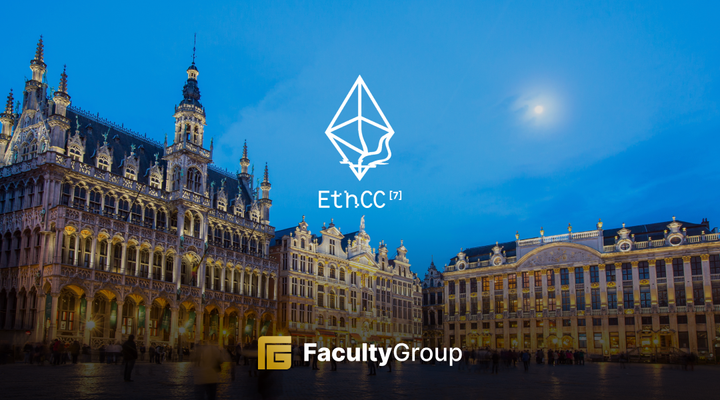Ocean Protocol: Democratising Data in the Age of AI

Having seen the rate of technological change in many industries over the course of my career, I think it is important to talk about data in the age of AI. AI will accelerate the technological advancement of humans, and the rate of change will exponentially increase. Along with 10x improvements in productivity, we need also to think about how this will affect humans. We are in many ways becoming more like machines in our increasingly online interactions through interfaces and devices.
“The one thing that separates us from machines is creativity, the ability to have quantum leaps in imagination, connect the dots in our own human way, work with the machines, and figure out something. That's actually how I got into web3 because I thought to myself if we can put a value on data, on intellectual property, on top of a blockchain using this type of Bitcoin ledger and database layer, then every person has a chance to participate in a machine economy.”
Studies show that technology is making us more introverted and insular. We as humans are influenced by our environment. For those who are more introverted like myself, this has been beneficial having more intermediation via machines. However, for more extroverted humans, these developments have left them feeling disconnected and this is having a profound effect on the mental health of many adults and children. A core value of being human is connection and interaction with other humans. AI will bring about the democratisation of intelligence and information, but at what cost to our society?
“Most people are scared that AI will become more like humans as it gets better. I put the counterintuitive proposal that we become more like the machines as AI gets better. We need to give people more chances for agency in the world, and I think AI is a part of that.”
When we started building Ocean Protocol in 2015, AI was just starting to take off with the first LLMs being designed and built. We recognised that there needed to be a way to verify data so it can be trusted and also protected from unauthorised use. The rise of GPT and the prevalence of deepfakes highlight the need for data attestation and blockchain integration to establish trust. Without blockchain verification, pre-blockchain data becomes unreliable and should be questioned. To ensure trust, authenticity, and provenance, all data should eventually be stored on blockchains. This requires a licensing system for data, a protocol enabling seamless and auditable interactions, and transparent control over data usage and compensation.
In 2013, when Trent, Masha and I conceptualised Ocean Protocol, we recognized the significance of a digital native currency, the integration of all data on blockchains, the necessity of a handshake protocol, and fair compensation for data producers. These components, revolving around crypto and blockchain, empower humans to effectively collaborate with machines and level the playing field in the face of advancing technology.
Fast forward to 2023, society is becoming increasingly reliant on data, especially with the advent of AI. The need for data verification is ever more apparent with BigTech’s LLMs released into the public domain without permission to use content. However, this small handful of organisations with both massive data assets and AI capabilities have attained worrying levels of control which is a danger to a free and open society.
We must licence, control and protect our data/content/personal information from being unfairly ‘used’ by LLMs. BigTech does not ‘own’ this data; nor have they ascribed the origin source of this data or ‘purchased’ it. Their models have merely hoovered up any and all data at scale in order to train their models.
“The library of music you’ve created, videos, writings, your demographic and biometrics data, all that stuff is going to be able to be attached to a human. In a world where machines are allocating resources, the core aim of Ocean is to give individuals control and a way to earn money off of our own data, to produce value and have agency even greater than what we could have ever imagined.”
Ocean unlocks data, for more equitable outcomes for data users, using a thoughtful application of both technology and governance. Our team and community are committed to kick-starting a New Data Economy that reaches every single person, company and device, giving power back to data owners and enabling individuals to capture value from data to better our world.
“I think that the power is going to be private data. Everyone will have a personal data vault, and LLMs are going to buy access and permission to go through, get insights, and those insights will then be token-gated. You’re going to have token-gated private data from people’s vaults, and you’re going to have token-gated insights, features, vectors and AI. That is the data economy that we are trying to enable.”
Ocean Protocol’s mandate is to ensure open access to the protocol and platform, provide data governance, encourage the network ecosystem growth, and take measures to ensure the platform becomes ever more decentralised over time. The tech stack makes it easy to publish data services (deploy ERC721 data NFTs and ERC20 datatokens), and to consume data services (spend datatokens). Digital asset wallets, exchanges, and DAOs become DATA wallets, exchanges, and DAOs.
At Ocean Protocol we believe that data should be verified on-chain and licensed for use by AI models, AI start-ups, companies and individuals such as scientists, academics, anyone who wants to control their own data or data sets. We also need a transparent AI royalty system to weight the contributions of humans everywhere to these models and to protect IP and copyright infringement and use of images, text, and voice without permission.
“I do believe in UBI (universal basic income) from the bottom-up, where you live your life, you take your steps everyday, you do all the things you need to do for your health and nutrition, you meet with friends, you do social media–all that stuff is going to be part of your data vault. That is something that you can then monetize in the future, and this is going to be available to all 8 billion people if we set the stage properly. That is UBI from the bottom-up, not from the top-down, and it is something I have devoted the last 10 years of my life to, and probably going to devote the rest of it to while I am working. That’s the baseline for everybody.”
So, it's crucial to give people the ability to sell their data and get paid for it based on their own conditions. And to make this process smooth and trustworthy, we need a system or set of rules (like a protocol) that ensures everything is transparent. This way, you can always know how your data is being used, whether it's in line with your preferences, and that you receive the money you deserve in your digital wallet. By establishing these mechanisms, we can foster a fair and accountable data economy that empowers individuals and promotes trust in data transactions.








